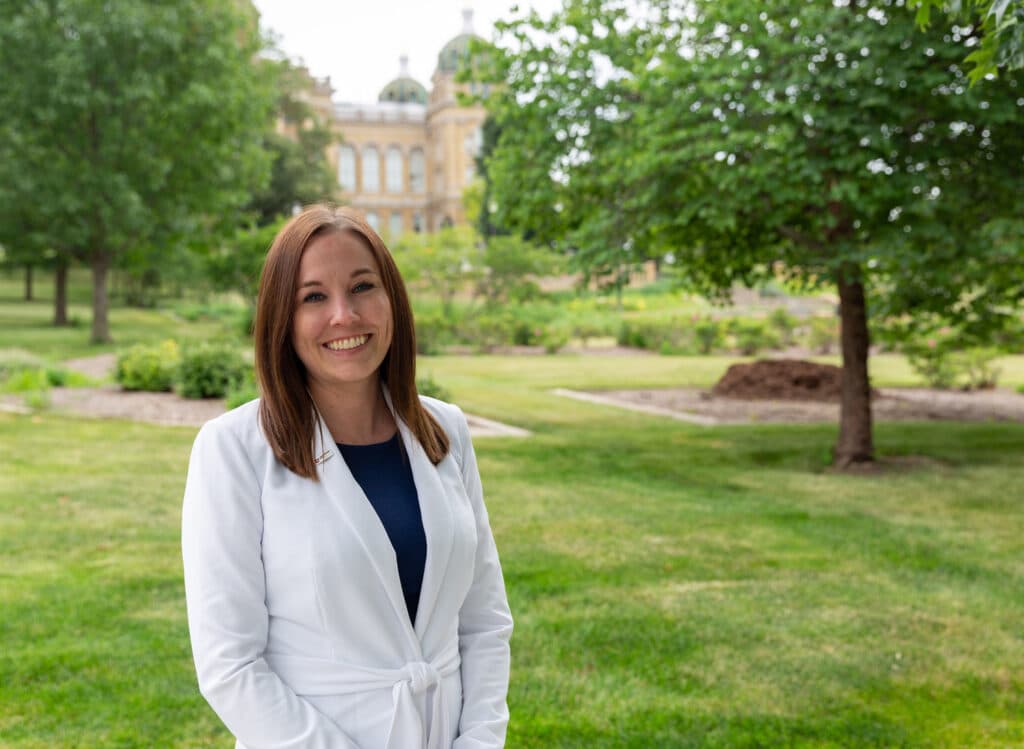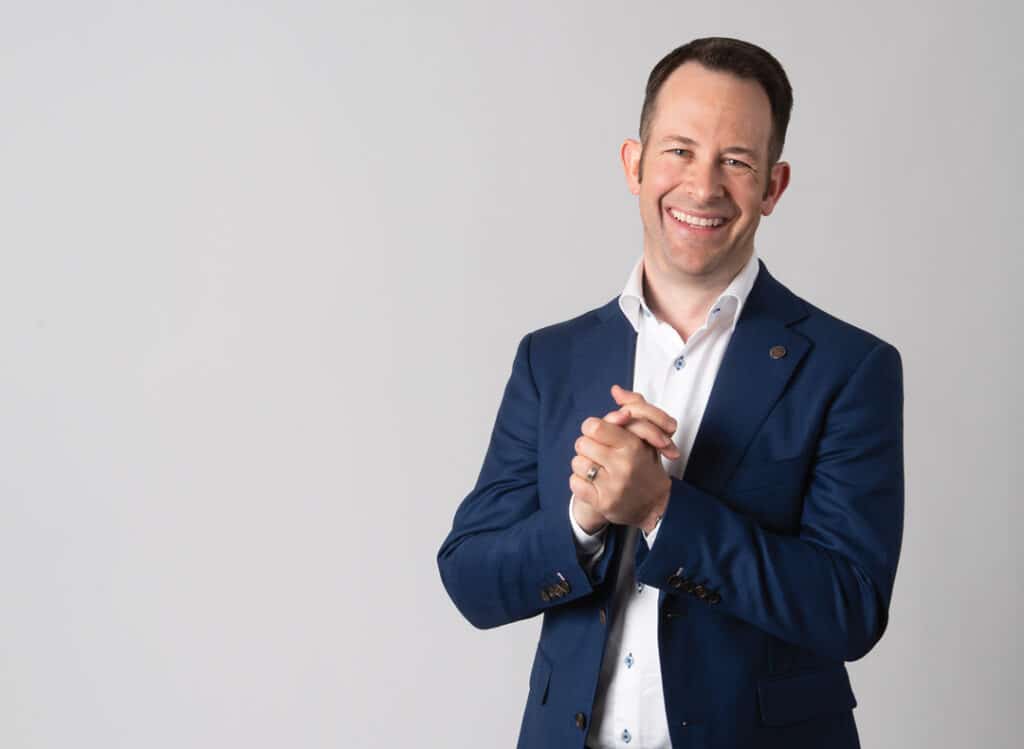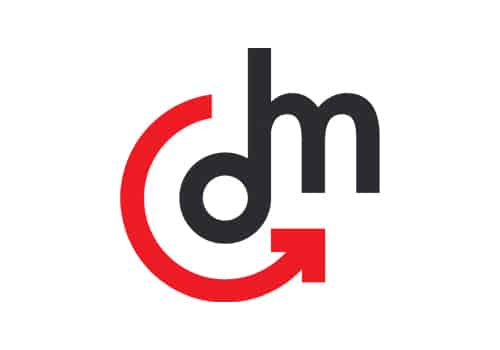Building a better digital world
dsmHack pulls together nonprofits, tech crowd for 48 hours of service

KATE HAYDEN Feb 21, 2019 | 3:56 pm
9 min read time
2,045 wordsBusiness Record Insider, Innovation and EntrepreneurshipWhere can you go to see more than $100,000 worth of services donated to 10 nonprofits in 48 hours?
Try dsmHack’s Charity Hack, a Friday-Saturday marathon of technologists solving challenges for Iowa nonprofits. This year, the hack will be hosted at the Des Moines Social Club Feb. 21-23.
The key to the event is the ripple effect, said Alex Karei, dsmHack vice president and communications chair.
“The impact that the Hack makes is so far beyond the 10 organizations in any given year, because the products that are coming out of this Hack impact all the clients … and the community as a whole,” Karei said. “This is 48 hours of your life, but it’s such a bigger impact that you’re making.”
As organizers make the final decisions on nonprofit applications for 2019 (which were due Jan. 31), Karei and dsmHack President Kevin Shannon shared the five-year-old hackathon’s backstory with the Business Record.
Q. Tell us what led to the dsmHack’s founding.
Shannon: A few of my friends and I had sort of been involved in hackathons through other means – a hackathon at work, or a hackathon in the community. … We thought, you know, we would really like to be able to find a way to give back to the community. We’re community minded, we really love living in Des Moines. So how can we give back to Des Moines through hackathon events? We brainstormed some with a few friends in the nonprofit community, and even with the startup community to ask is there an appetite for working on projects that are big enough to have an impact, but yet small enough that we can get them done in 48 hours?
We pitched the first annual – you always wonder whether it’s going to go well when you call it the first annual, but it went well, it was a great success. We had 10 projects from that first year [2014], and about 80-90 participants.
From then, we’ve had really positive success, both in projects that have turned out and also word-of-mouth within the nonprofit community, to encourage us to continue to have this event year after year.
Q. Where is this hosted?
Shannon: Last year, we had it at the FFA Enrichment Center. Before that, we’ve had it at Gravitate for a couple of years, the first year was at Startup City. We’ve outgrown the Gravitate space, so we need a little more room for developers. This year will be at the Des Moines Social Club, we’re going to take over their building basically Feb. 21-23. We will have opening presentations downstairs, but then the hackers will be working upstairs in the different conference rooms and that culinary-loft type space.
Q. What are the challenges these nonprofits have when they come to dsmHack? Is there a typical project or needs?
Shannon: It can be a variety of different types of projects. The one thing that we see is maybe like a website update. Maybe they’ve been working with their website, but it doesn’t look very pretty, or it’s not very user-friendly. So they’ll come to us and ask for help with maybe redoing their website or reorganizing the content on it to make it easier to use, or to add some features they’ve been missing.
One of my favorite projects we’ve done in the past is with Forest Avenue Outreach. They came to us, I think, for a website update, but then the hackers found out that they had enough time left over so they asked, “what are your other needs?”
The gentleman there describes how he’s been keeping track of produce that they grow in the garden, but he’s been keeping track with paper records. So he doesn’t really know how much good he’s doing in the community. They built a website for him that he can use his mobile phone to track, as soon as he harvests, he can type that quickly in his mobile phone, and then it’ll keep track of his produce throughout the growing season without having papers that you might lose or misplace. It takes the time and date, and how many pounds of potatoes or carrots you grew – just something simple like that, but it will hopefully really help him with his process, and be able to use that data for grant applications and things like that.
Q. Who are the volunteers signing up for dsmHack?
Shannon: We invite all sorts of different levels of expertise. So whether … you’re just out of college, or maybe you’ve been working for a company for six months or a year – all the way up to experienced professionals who’ve been in the industry for 10, maybe 20 years. A lot of our participants come from large companies in the metro, Wells Fargo, Workiva, Athene, Principal, companies like that where maybe most of the projects that they see are honestly more like three to 12 months-long projects.
We throw them into this environment where they’ve only got 48 hours to build, and actually, some of them will learn new technologies through this process, too. Some might be a mobile app or mobile website developer, so they’ll take that experience and bring it into the hackathon, but others will have to research and maybe learn a new technology at the hackathon.
We also always welcome our project managers and graphic designers. There’s always usually a need for people outside the project to help keep the project moving, and help analyze and understand the needs of that nonprofit, put it into developer speak, if that’s needed.
Q. Is there anything in the country similar to this?
Shannon: We had participated in hackathons in the past, so we had sort of seen that model and maybe done a hackathon or two at work. … But as far as we know, it’s sort of a unique event. Across the country, we see other hackathons that are maybe sponsored by a company for a weekend, but this is really a unique event in that it’s community-driven, so it’s not sponsored by only one company. It’s really a bunch of companies coming together.
The other model you might see is that one company will take one organization under their wing for a period of six months … but this is really neat in that we get 10 to 12 nonprofits, and we’re helping them all at once.
Q. What kind of nonprofit do you accept through your application process?
Shannon: We are especially looking for 501(c)(3) organizations, or maybe a civic organization – so for example with the Des Moines school district, we helped them with a silver cord [volunteer] hours tracking project. We really try to stay away from any organization that would be discriminatory toward people, of course.
As for the type of projects, we are looking for something that we can finish in 48 hours.
Karei: We want the nonprofits to be able to leave with what they came in intending to get completed, we don’t want anybody to feel like they’ve kind of got shorted. To that point, we make sure coming in that we feel we can accomplish that project.
Shannon: We also do try to stay away from anything that would [have] HIPPA compliance issues. If there’s something that’s [got] healthcare, or private information about people, credit card numbers, we don’t typically do that.
One project we have worked on was with Iowa Public Radio, to help them use Shopify, a shopping platform, to offer an online store for members. So if you were already a sustaining member but you missed out on getting the latest IPR shirt, you could go to this website … and purchase that item.
We also try not to duplicate something that’s out in the marketplace. Maybe you really want to have a better way to track your donors, but if you haven’t looked at Salesforce yet, we might redirect you to Salesforce because they offer something for free for nonprofits, versus trying to create Salesforce from the ground up because that would be a really big project, and there’s maybe something better that can meet your needs.
Karei: We also really think about the participants when we’re selecting projects to bring in, and try to provide a really good variety of the type of project and the type of nonprofit as much as we can based on who applies. So we’re really looking for unique things that, when participants come in and they find out who the nonprofits are the night of the event, they find things they can get excited about.
Q. Are participants generally familiar with who these nonprofits are?
Shannon: We find that a lot of our technologists don’t yet volunteer in the community. They have these great skills … that they can put time toward, but they don’t know how to get started. They don’t know what nonprofits are needing tech skills, so it’s really great to see them rally around a nonprofit that maybe aligns with their personal beliefs or personal goals, and then be able to donate their time to the nonprofit, not just at the hackathon. Every now and then you also get a group of hackers who stay with the project for, you know, a few months, or maybe even after a year, who keep working with that nonprofit on little enhancements. Or maybe they’ll even plan another hackathon … later in the year to finish up on a project.
We really do like to make those connections and help people learn about projects that are going on in the community. As for the organizations that we select, some are big names like Habitat for Humanity, or the Community Foundation of Greater Des Moines. Those are great large organizations that we’ve helped recently, but others are brand new nonprofits.
Grayson’s Gifts is a brand new nonprofit. They were about six weeks old in receiving their nonprofit 501(c)(3) certificate from the IRS when they approached dsmHack last year. They are a group that wants to help parents considering adoption … understand the adoption process.
The parents who co-founded it found there really weren’t resources online. We were able to help them build a website, online message forum and even a testimonial page to help them get the word out and answer questions from adoptive parents.
Q. How involved are nonprofits during the weekend?
Shannon: We found most success when [nonprofit representatives are] there. .. We ask them to participate that Thursday night when we kick off around 6 or 7 until maybe 10 or 11 o’clock at night to really explain their projects and their needs and their dreams to that [technologists] team. Then we want them to at least once a day check in on Friday and Saturday, and then be there for the closing on Saturday when they get a demo of their finished project back to the community.
We found really great success when the nonprofit partners are able to spend time there with us on Friday. They’re welcome to bring their laptops and just work remotely with us so that they can be there to answer questions. I know it’s a lot to ask of our nonprofit partners to be available 24/7 for those two or three days, but I think it will really help the teams to get all of their questions answered and keep moving.
Q. How do you see dsmHack growing in the next few years?
Shannon: We would like to have more workshops to have communications with nonprofits throughout the year. We’d also like to figure out how we can match up technologists in our community with nonprofits throughout the year – maybe our hackathon weekend doesn’t work in someone’s schedule, but that person still wants to find a project and give back … Or if a nonprofit has a small question, how can we give them advice throughout the year? We know our needs, but we haven’t decided on a solution yet.
Karei: We expanded the number of technology participants we’re bringing in for the hack. I believe … it’s 100 tickets sold this year, up from 85 last year. We’re working to grow the hack itself, in addition to stuff outside the hack.









